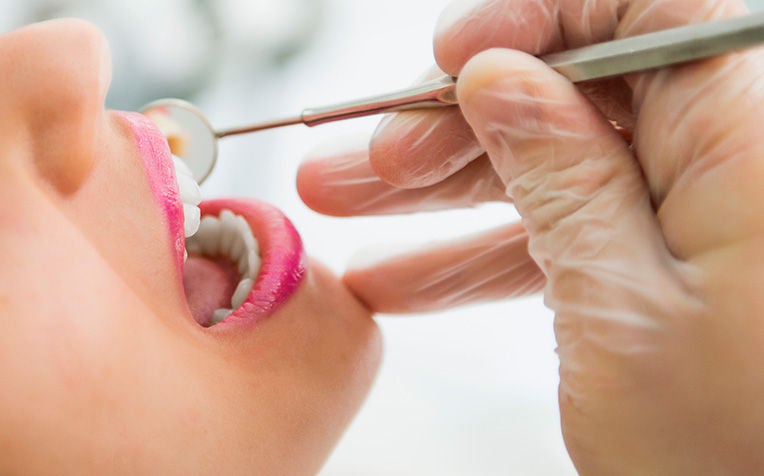HealthXchange will NEVER ask you to transfer money over a call. If in doubt, call the 24/7 ScamShield helpline at 1799, or visit the ScamShield website at www.scamshield.gov.sg.

Nose cancer patients are often required to visit their dentist before undergoing radiotherapy.
Nose cancer patients are sometimes puzzled that their oncologist recommend they go for a dental examination before any radiation therapy (radiotherapy). After all, what does dental care have to do with nose cancer?
Dr Christina Sim, Senior Consultant, Prosthodontic Unit, Department of Restorative Dentistry, National Dental Centre Singapore (NDCS), a member of the SingHealth group, explains the connection between the two. “Radiotherapy of the head and neck can have oral side effects which results in long term complications such as limited mouth opening, dental decay and bone death. Hence, oral care is aimed at preventing these problems before they occur,” she says.
Side effects of nose cancer radiotherapy
Many of the side effects appear within two to three weeks of treatment but can increase throughout the duration of the treatment. Although some are temporary, others may be permanent.
The common side effects of radiotherapy for head and neck cancers (including nose cancer) include:
- Skin redness and irritation: The skin area undergoing radiation may become red and itchy. Depending on the area treated and dosage, your skin may not return to normal.
- Changes in taste (dysgeusia): As taste buds are affected by radiation, food tastes differently when you undergo radiotherapy. However, your sense of taste should improve over time and return to normal within six months to a year.
- Mouth sores (mucositis): Mouth sores and ulcers are common oral side effects of radiotherapy. Often appearing during the second or third week of treatment, they interfere with chewing, speech and oral hygiene, but are likely to decrease after completion of your radiotherapy.
- Dry mouth (xerostomia): Saliva, which helps to lubricate the mouth and protect teeth, decreases as a result of radiotherapy. This causes the saliva to thicken, making it difficult to swallow.
- Tooth decay (caries): As salivary flow diminishes, teeth become more susceptible to decay. To prevent this, avoid high-sugar foods and brush regularly after meals. Also, have frequent dental check-ups every three to six months.
- Bone death (osteoradionecrosis): Should you require a tooth extraction after cancer treatment, you will be at risk of developing bone death – the most severe oral side effect of radiotherapy. Bone death occurs when small vessels responsible for carrying nutrients and oxygen to living bone are destroyed, reducing the bone’s ability to heal itself. As this condition is difficult to treat, a strict preventive programme is important.
- Limited mouth opening (trismus): Scarring of the chewing muscles from radiation can also lead to limited mouth opening or trismus.
Read on to learn how to minimise the oral side effects of radiotherapy for nose cancer.
Ref: M19
Contributed by
Related Articles
Public Events
Get the Health Buddy App
© 2025 SingHealth Group. All Rights Reserved.


















 Get it on Google Play
Get it on Google Play